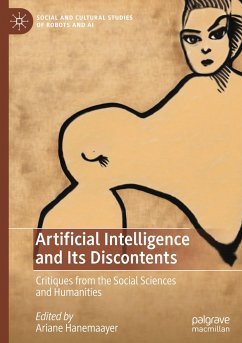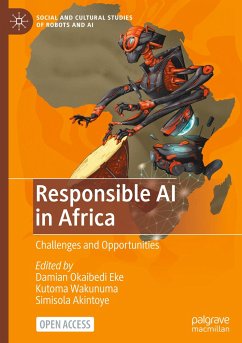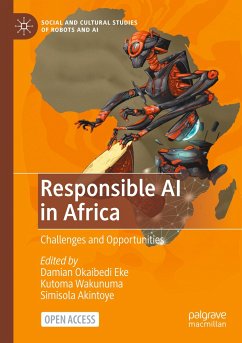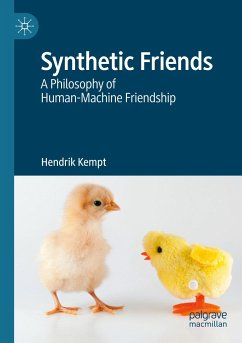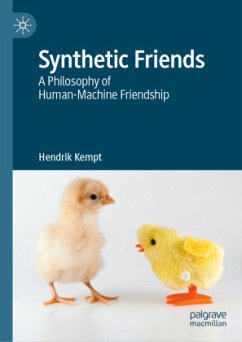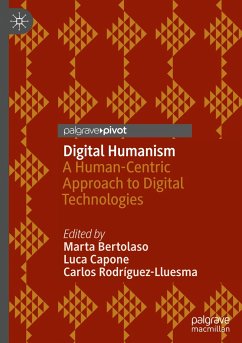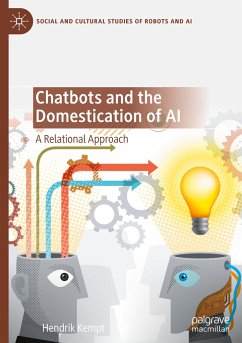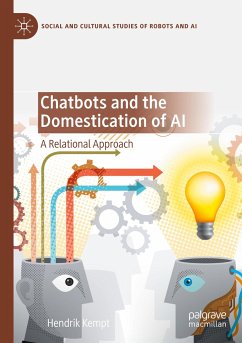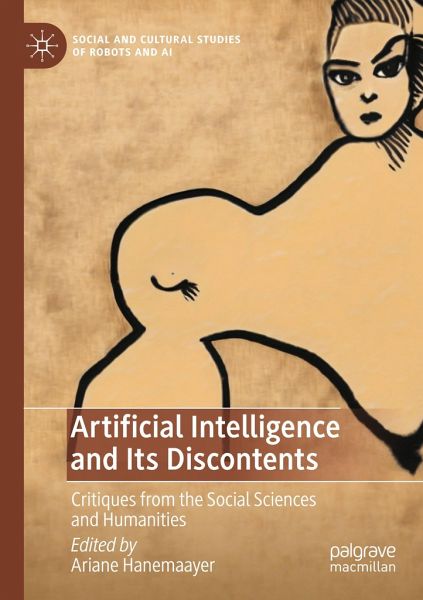
Artificial Intelligence and Its Discontents
Critiques from the Social Sciences and Humanities
Herausgegeben: Hanemaayer, Ariane
Versandkostenfrei!
Versandfertig in 6-10 Tagen
91,99 €
inkl. MwSt.

PAYBACK Punkte
46 °P sammeln!
On what basis can we challenge Artificial Intelligence (AI) - its infusion, investment,and implementation across the globe? This book answers this question bydrawing on a range of critical approaches from the social sciences and humanities,including posthumanism, ethics and human values, surveillance studies, Blackfeminism, and other strategies for social and political resistance. The authorsanalyse timely topics, including bias and language processing, responsibilityand machine learning, COVID-19 and AI in health technologies, bio-AI andnanotechnology, digital ethics, AI and the gig economy, ...
On what basis can we challenge Artificial Intelligence (AI) - its infusion, investment,
and implementation across the globe? This book answers this question by
drawing on a range of critical approaches from the social sciences and humanities,
including posthumanism, ethics and human values, surveillance studies, Black
feminism, and other strategies for social and political resistance. The authors
analyse timely topics, including bias and language processing, responsibility
and machine learning, COVID-19 and AI in health technologies, bio-AI and
nanotechnology, digital ethics, AI and the gig economy, representations of AI in
literature and culture, and many more. This book is for those who are currently
working in the field of AI critique and disruption as well as in AI development and
programming. It is also for those who want to learn more about how to doubt,
question, challenge, reject, reform and otherwise reprise AI as it been practiced
and promoted.
and implementation across the globe? This book answers this question by
drawing on a range of critical approaches from the social sciences and humanities,
including posthumanism, ethics and human values, surveillance studies, Black
feminism, and other strategies for social and political resistance. The authors
analyse timely topics, including bias and language processing, responsibility
and machine learning, COVID-19 and AI in health technologies, bio-AI and
nanotechnology, digital ethics, AI and the gig economy, representations of AI in
literature and culture, and many more. This book is for those who are currently
working in the field of AI critique and disruption as well as in AI development and
programming. It is also for those who want to learn more about how to doubt,
question, challenge, reject, reform and otherwise reprise AI as it been practiced
and promoted.





